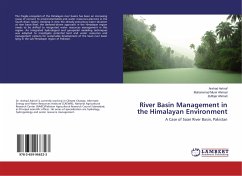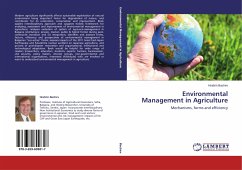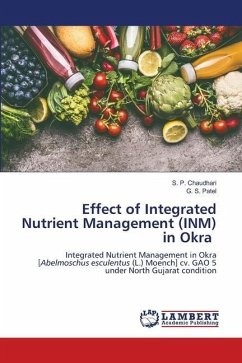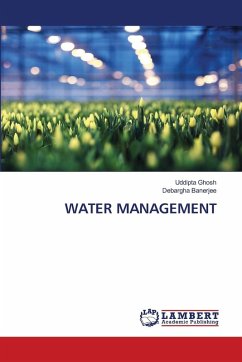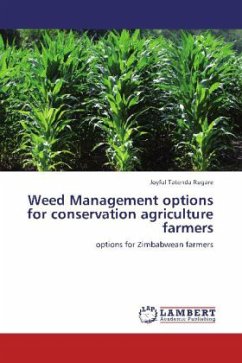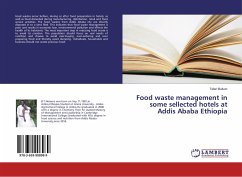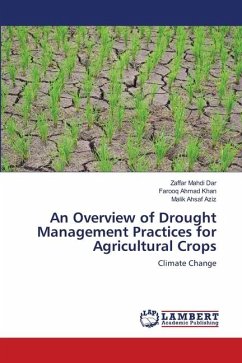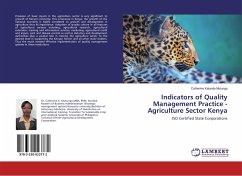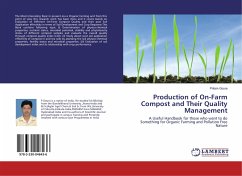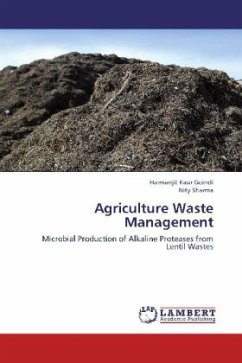
Agriculture Waste Management
Microbial Production of Alkaline Proteases from Lentil Wastes
Versandkostenfrei!
Versandfertig in 6-10 Tagen
32,99 €
inkl. MwSt.

PAYBACK Punkte
16 °P sammeln!
As much as agriculture is important to meet the food requirements of people, the waste disposal has become an increasing necessity, especially in India, a heavily populated country. Simple methods like burning of the agricultural residues is not recommended as these residues or wastes can be used economically for the production of certain valuable products. This study encompasses the use of lentil wastes for the microbial production of alkaline proteases by solid state fermentation and will be of use to any biologist, agriculturist or economist. Alkaline proteases are of great commercial value...
As much as agriculture is important to meet the food requirements of people, the waste disposal has become an increasing necessity, especially in India, a heavily populated country. Simple methods like burning of the agricultural residues is not recommended as these residues or wastes can be used economically for the production of certain valuable products. This study encompasses the use of lentil wastes for the microbial production of alkaline proteases by solid state fermentation and will be of use to any biologist, agriculturist or economist. Alkaline proteases are of great commercial value and have numerous applications in industry, research, medicine, detergents, food and pharmaceuticals. Needless to say the utilization of agricultural wastes for production of alkaline proteases by microorganisms is effective in management of agrowastes besides yielding value added products on economical substrates.



